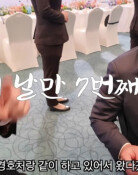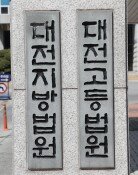[Editorial] To Lead the United Nations
[Editorial] To Lead the United Nations
Posted October. 04, 2006 07:08,
Korean Foreign Minister Ban Ki-moons virtual nomination as the eighth secretary-general of the United Nations (UN) yesterday is not only a personal honor but also a matter of congratulations for the nation as a whole. This deserves celebration in that Korea can now demonstrate its national strength all around the world and give pride and confidence to future generations. The whole nation should lend support until he is eventually elected at the UN General Assembly.
Ban has made it this far thanks to the international communitys recognition that his coordination and leadership, established from his reasonable personality and 36-year career as a professional diplomat, is suitable for leading the UN, the world government consisting of 192 member states. Also a great help has been the status of Korea, which established and defended the country thanks to the UNs help, achieved both democracy and industrialization despite the tragedy of national division and has transformed itself from one of the worlds poorest nations to the worlds 11th-largest economy in terms of gross domestic product (GDP).
A UN secretary-general is such an honorable post that it is dubbed the chancellor of the global village, but at the same time it is a position where corresponding roles are required. Amid the end of the Cold War, the international community has faced new challenges that it has never experienced before. As individual countries have a lot more say, chances of local conflicts have rather increased, and the risks of borderless wars such as terrorist attacks have also heightened. Also being aggravated are such problems as the gap between rich and poor countries, environmental degradation and diseases.
The scope of interests in security has also been expanded from traditional national security to human security. The argument goes: The UN should actively engage if a nation fails to take responsibility for safety and human rights of its own people. Preventing proliferation of nuclear weapons and other weapons of mass destruction (WMD) is one of the major missions taken on by the UN. What this means is that we can no longer deal with North Koreas human rights and nuclear issues under the exclusive principle of with the nations own hands. Now Ban himself is on the forefront of resolving this issue.
Taking this opportunity, Koreas diplomacy needs to be revisited rationally. Even with such a distinguished figure as Ban on the post of foreign minister, Korea has suffered losses in its every diplomatic effort toward the U.S., China and Japan. This is the consequence of pressuring diplomacy with an unpractical self-reliance rhetoric and granting amateurs more authority than they can possibly take. Diplomacy should be committed to experts care, at least in the upcoming process of reshuffling the foreign affairs and national security teams.




![[속보]美 “미국인은 이란 당장 떠나라” 대사관 긴급 공지](https://dimg.donga.com/c/138/175/90/1/wps/NEWS/IMAGE/2026/01/13/133147285.1.jpg)


